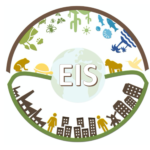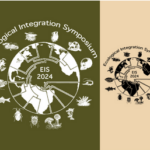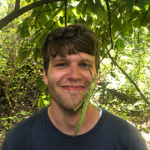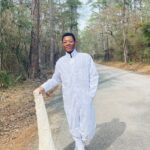2024 Ecological Integration Symposium
Global Innovations in Ecology

The 2024 Ecological Integration Symposium Committee invites you to attend the 24th Annual Texas A&M University Ecological Integration Symposium on April 4th and 5th, 2024 in Rudder Tower at Texas A&M University in College Station, Texas.
Plenary talks will be on April 4th in Rudder Tower. Student presentations and poster sessions will be on April 5th in Rudder Tower and Exhibit Hall. A social gathering will follow the symposium. This page will be updated as information is finalized.
Plenary Speakers
We are excited to announce our 2024 EIS plenary speakers Dr. Steve Cooke (Carleton University, Canada), Dr. Maria Diuk-Wasser (Columbia University), Dr. Nancy Grimm (Arizona State University), Dr. Pamela Soltis (Florida Museum at University of Florida) and Dr. Pat Wright (Stony Brook University).
Plenary talks will be on Thursday, April 4th in Rudder Theater.
Registration and Attendance
Registration form. Please use this form to register for the 2024 Ecological Integration Symposium (EIS). Registration is completely free. Registration is required to attend.
Presentations
Undergraduate and graduate student submissions will be accepted, as well as presentations by postdoctoral researchers.
If you are interested in presenting, both the registration and abstract submission forms must be submitted no later than March 8th. Otherwise, online registration will remain open until April 3rd.
Abstract submissions
QR code for Abstract submission:
Oral presentations will take place throughout the day on Friday April 5th, in Rudder Tower. They will be organized in 15-minute time allotments (12 minutes for talk, 3 minutes for questions and switching rooms).
Poster presentations will be held during the afternoon of April 5th at Rudder Exhibit Hall. Poster dimensions should not exceed 48 inches x 40 inches.
Presentations will be judged and monetary awards will be distributed for best student poster and oral presentations.
Program and Schedule
All of the information on the schedule of talks, locations for each day, parking, bus routes and more can be found in our program.
View/download the program and schedule.
Materials
Announcement
Maps
Abstracts (PDF)
Merchandise – The new 2024 EIS t-shirts along with limited edition vintage merchandise are available in the ECCB store! Items include EIS mugs, shirts, hats, and stickers!

Thank You to the 2024 EIS Planning Committee!
The Ecological Integration Symposium is a graduate student-run event. The Planning Committee plays a key role in the continued success of EIS. Meet this year’s members!

Hayden Roberts
Email : hcr@tamu.edu
Perkin LabI am a second year PhD student in the Department of Ecology and Conservation Biology as part of Dr. Joshuah Perkin’s Riverscape Ecology Lab. I received my Master of Science degree in Spring 2022 in this lab as well. I am broadly interested in fish ecology and evolution and have used various integrated field and laboratory approaches to learn about freshwater fishes with the hope to provide important information for managing threatened species inhabiting Texas rivers and streams. My current PhD research investigates the genetics, morphology, and ecology of a potentially undescribed freshwater fish, the Llano River Carpsucker, inhabiting Texas Hill Country streams within the Edwards Plateau of Texas. If you are interested in learning more about my work feel free to see my Researchgate!

Jackson Linde
Email: jackson.linde@tamu.edu
Song LabHey there! I am pursuing a PhD in the Song lab in Ecology and Evolutionary Biology. My research interest is broadly in Orthopteroid phylogenetics and systematics. The focus of my M.S. degree was in walking sticks and leaves and their evolutionary history. Here at TAMU, I will research the phylogenomics of Katydids and their acoustic communication and even expand my studies to all Enifera (crickets, katydids and allied groups). Additionally, I will research the population genomics of Mormon crickets. In my free time, I love to bake, play video games, and read J.R.R. Tolkien.ResearchGate
Google Scholar

Austin Ehrie
Biology PhD Program
Email: ajehrie@tamu.edu
Fitzpatrick LabI am a second year Biology PhD student who primarily studies animal behavior and organismal biology with an emphasis on sexual selection, mating behavior, and reproduction in non-human primates. I am particularly interested in exploring phenotypes that challenge traditional evolutionary paradigms. In 2022 he graduated from Indiana University with a BS in Animal Behavior and a BA in Environmental and Sustainability Studies. While at Indiana University I conducted two independent research projects: one investigating the neurotranscriptomic profiles of reproductive behaviors in a sex-role reversed shorebird (Jacana spinosa) and the other testing whether parallel laser photogrammetry could be used to measure the testes of mantled howler monkeys (Alouatta palliata) non-invasively. In the Fitzpatrick lab, I am examining how social dynamics and life experience influences the probability of conception in the Amboseli baboons.

Cara Webster
Email: cfjwebster17@tamu.edu
Smotherman LabI am a third year PhD candidate in the Smotherman lab within the Biology Department. My research interests include behavioral and sensory ecology, and organismal responses to environmental change. Currently, my research focuses on using multiple tools (functional genomics, modeling, colony monitoring, etc.) to investigate migratory variation in the Mexican free-tailed bat (Tadarida brasiliensis). By employing these different methodologies, I aim to better characterize this species’ movement patterns as well as apply this to other migratory bat species that are of conservation concern.

Oluwaseun David Ajileye
Email: ajileye_.5@tamu.edu
Light LabI am a second-year PhD student in the Light Lab within the Ecology and Evolutionary Biology Program. My research interests encompass host-parasite interactions, vector-borne diseases, and vector ecology. Specifically, I am investigating the distribution and coinfection patterns of filarial nematodes and tick-borne pathogens in North American tick vectors. Through next-generation sequencing and molecular techniques, I aim to characterize and examine tick microbiomes to elucidate potential biological associations between tick hosts, parasites, and pathogenic microorganisms. I completed my bachelor’s in Biology from the Federal University of Technology, Akure, Nigeria, where I characterized and isolated medically important public health parasites and pathogens commonly associated with humans and wildlife.

Adeyinka Adeyemi
Email: adeyinka08@tamu.edu
Spalink LabI am a second year PhD student in Ecology and Evolutionary Biology in the Daniel Spalink Lab. I received my undergraduate degree in Botany from University of Ibadan, Nigeria with a concentration in plant taxonomy and systematics where I investigated the anatomy, morphology and genetics of genus Acalypha. My research interests are phylogenetics, biogeography and diversification of plants. Currently, for my PhD research I am applying my expertise to understand the drivers of diversification and assembly in the sedge genus Fimbristylis. I enjoy sewing and cooking.
 Jorge Medina-Duran
Jorge Medina-DuranEmail : jorgemedinad@tamu.edu
Song LabI am a fifth-year PhD candidate in the Department of Entomology, advised by Dr. Hojun Song. My research interests lie in the field of ecology and evolution of symbiotic associates, with a particular focus on the diversity and systematics of a group of protist parasites called gregarines. During my undergraduate and Master’s studies at the Universidad Nacional Autonoma de Mexico (UNAM), I began studying the morphological diversity and taxonomy of gregarines. Currently, I am investigating the morphology, genomics, and phylogeny of these parasites associated with orthopteran insect hosts in order to gain an understanding of the drivers of their diversity.

Nicole Scavo
Email: nicole.scavo@tamu.edu
Gabe Hamer LabI am a fourth year PhD Candidate in the Ecology and Evolutionary Biology program. Both my masters and PhD work have focused on the ecology of the yellow fever mosquito, Aedes aegypti. I am interested in socio-ecological factors and ecological processes that impact its populations and control. In the future, I hope to expand my research to include other vector-borne disease systems and to conduct research that investigates positive outcomes for both conservation and public health. In my free time, I enjoy baking, sewing, and playing Dungeons and Dragons.

Malik Nkrumah
Email: maliknkrumah@tamu.edu
Noormets LabI am a second-year PhD student in the Department of Ecology and Conservation Biology, affiliated with Dr. Asko Noormets’ Forest Ecology Lab. My academic background includes a master’s degree from Sichuan Agricultural University in China, where I conducted research on carbon partitioning and storage within paddy rice ecosystems. This investigation aimed to comprehend how various rice cultivars assimilate and store carbon, with a primary focus on mitigating greenhouse gas emissions through sustainable management practices. Presently, my PhD research revolves around carbon allocation and flux partitioning within forest ecosystems. Specifically, I am interested in studying fine root and fungal carbon allocations, as well as the persistence and storage of coarse root carbon within forests.

Adekola Owoyemi
Email: ludtson@tamu.edu
Casola LabAdekola is a second-year PhD student specializing in Ecology and Conservation Biology, with a keen focus on genomics and evolutionary dynamics. Currently, he is investigating the evolution of de-novo genes (lineage-specific genes) within plant species. He has a Bachelor’s degree in Botany from the University of Lagos, Nigeria and a Master’s degree in Biological Sciences at Auburn University, Alabama. During his Masters, his research delved deep into the realms of genomics and biogeography. Adekola’s research centered on unraveling the genomic and biogeographical patterns of Eleusine species in Africa, showcasing his dedication to advancing scientific understanding and conservation initiatives. His overarching research goal revolves around deciphering the intricate patterns of organismal diversity by elucidating the genomic processes that drive them and understanding their interactions with the environment. Ultimately, Adekola aspires to leverage his expertise to offer innovative solutions to pressing environmental challenges.
